
The way you say things matters. To make sure the feedback you are giving someone is heard, you need to avoid triggering the ego. Try not to say things in such a way that would make them defensive.
Why? Because you not only want them to hear what you had to say but do something with it too. You want them to take action, not hear your tough love and mope about afterwards.
Let’s say you wanted to tell your buddy that his presentation sucked. You could attempt the point-blank approach and try:

But then, what might he have heard? Roll back the tape…

Not what you said, but he believed the paper was world-class AND part of his identity is attached to being a good writer, so you’ve triggered his ego and it’s ready for war.
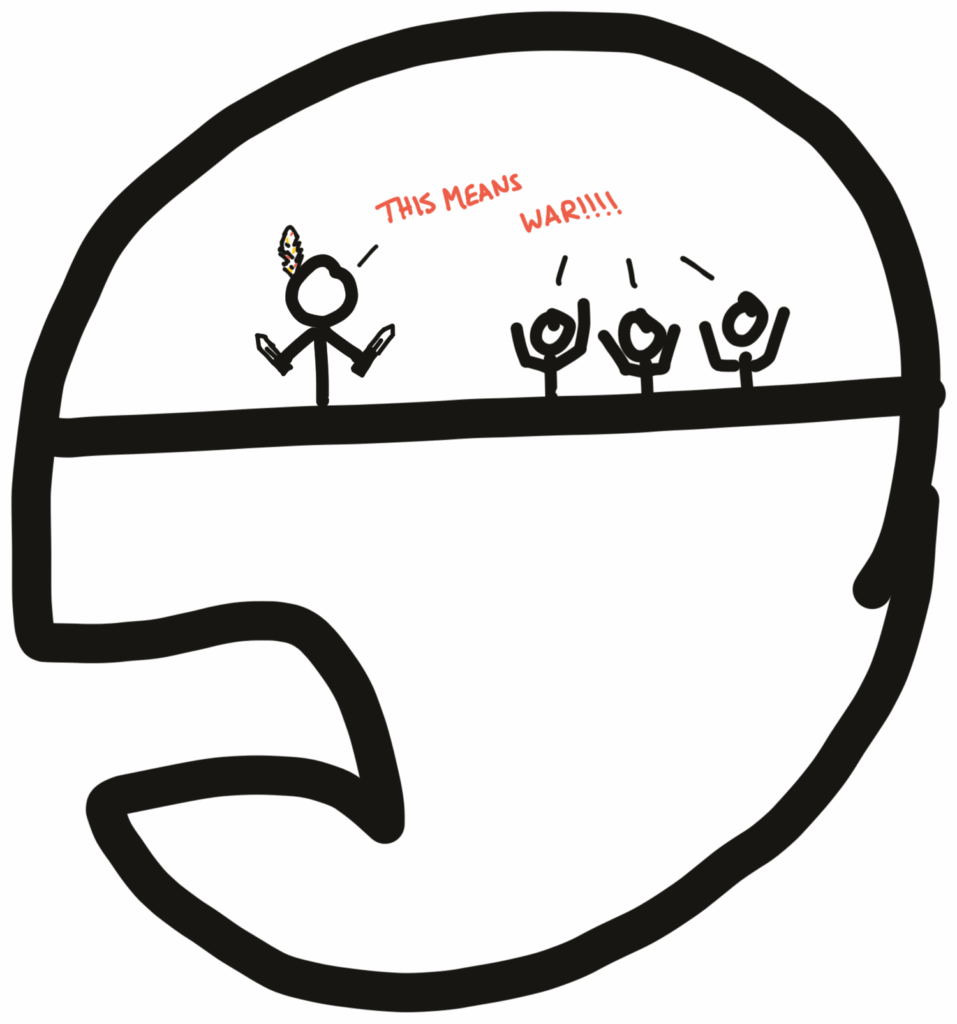
He is no longer hearing the wonderful advice you’re giving about how to restructure the argument, improve his transition systems, and adjust his prose. No. His war council is looking for every angle to prove you wrong. He’s not listening anymore.
A more tactful approach to sneak around his ego:
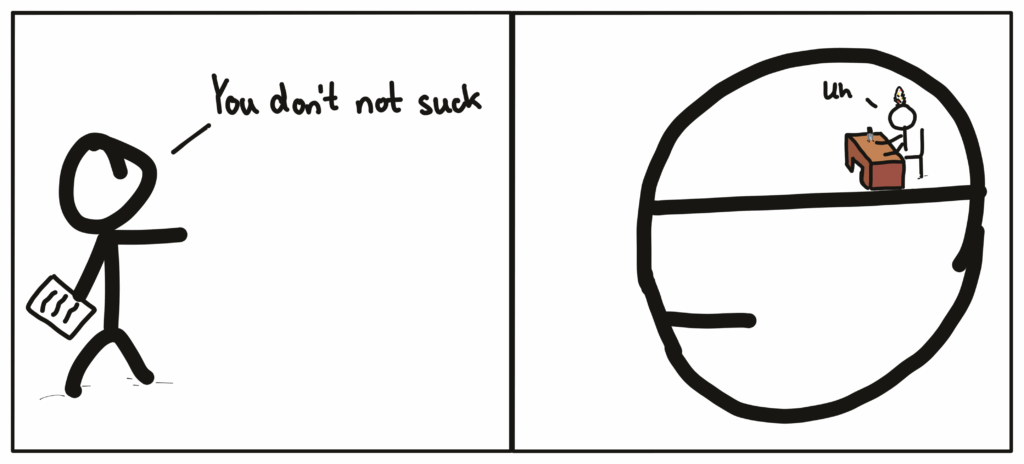
Just kidding. Try this:
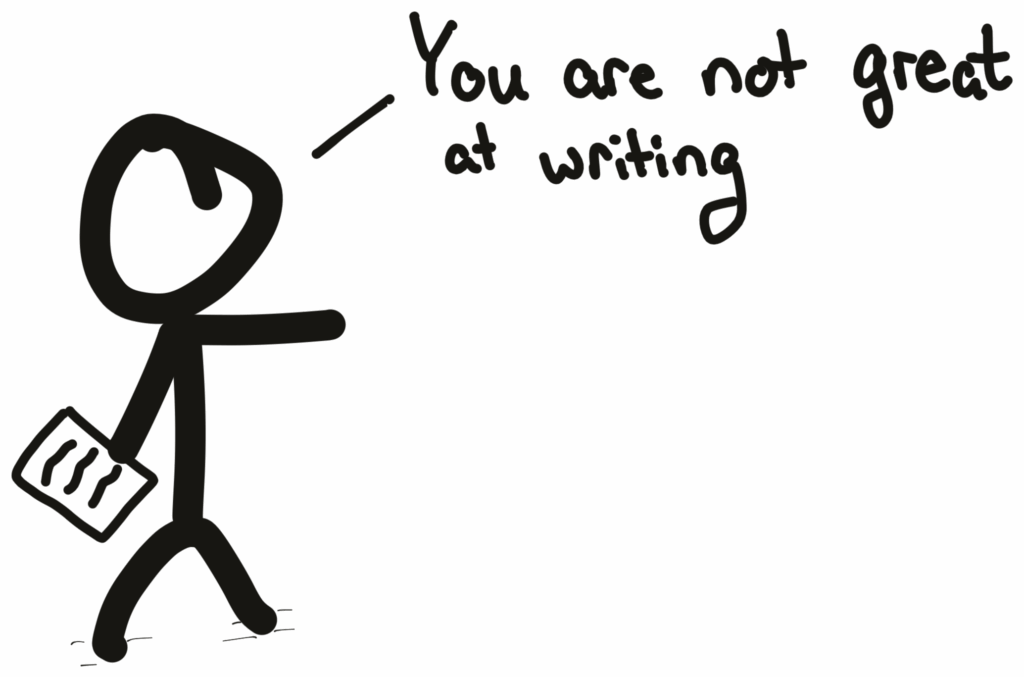
The idea is to give their ego room to escape—i.e., room to favorably interpret what you’ve said. When you say, “You suck”, it’s pretty certain that you’re saying they are bad. When you say they’re not great at writing, there’s are more options for their ego to choose from:
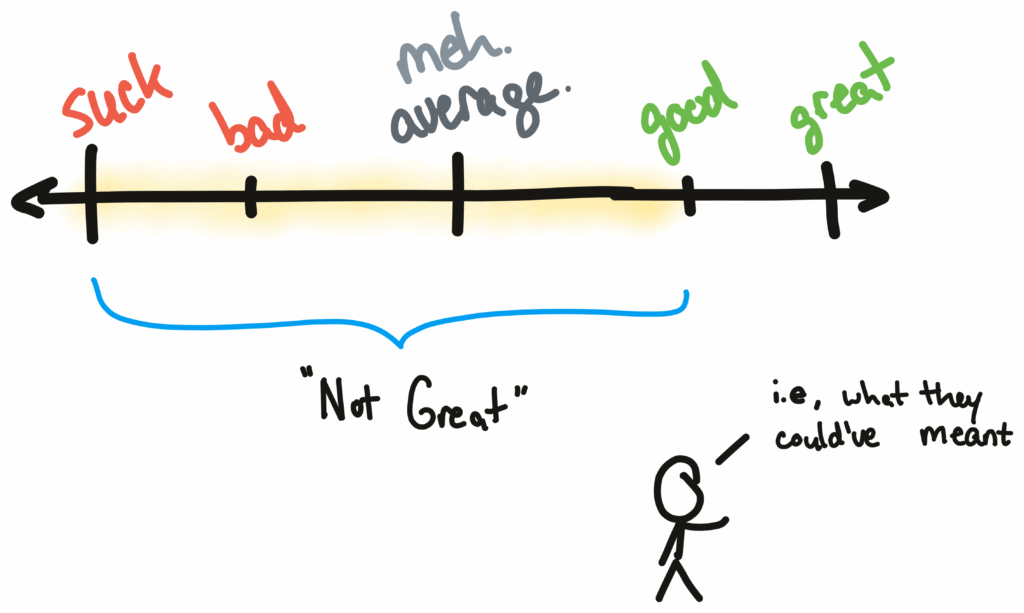
Then to make sure their ego can save even more face, tag on the belief that they’re capable of growing here:

When Does a Person Need the Soft Approach?
“If you ask for someone’s feedback, you’ll get a critic. But if instead you ask for advice, you’ll get a partner.”—Kevin Kelly
Two facets to this: 1) the less the skill or action is attached to their ego, the blunter you can be, and 2) the more Type A the person is the blunter you can be.
If you tell me that I suck at cooking, sure. *shrugs* Fine. I don’t care to be good at cooking so my self-esteem has no basis in it (unless you insult my ability to cook eggs and toast bread. Then you’re basically saying it’s a miracle I’m alive despite my better efforts).
If you tell me that I’m fat, incompetent, or remotely inefficient in my approach, then congrats you’ve triggered my war council.

So, first determine whether the feedback you want to give is something they hold dear to their identity. Is it something they take pride in?
Next, determine whether they lean Type-A in their personality. Type A individuals are competitive people. They are experienced with failing and using that as fuel to their flame. These kinds of people tend more to lean into pain and try to outperform it.
Tell them what they did wrong, how to fix it, and set them free to work.
When to be Blunt Otherwise
‘Anyone can become angry, that’s easy enough. But being angry at the right person, to the right degree, at the right time, for the right purpose, and in the right way – that’s not an easy matter.’ —Aristotle
It would be cool to have your cake and eat it too everytime but life doesn’t serve up perfect dishes. The stars almost never align. You will find yourself with tough feedback to give to a friend and the ‘right time’ will never come. Or a co-worker is getting agitated with someone and you need to say something immediately. In any case, there are times when for the sake of speed and timing they need feedback right away.
Calibrating your bluntness is more of an art than a science. Get out there and get it wrong a few times to figure it out.
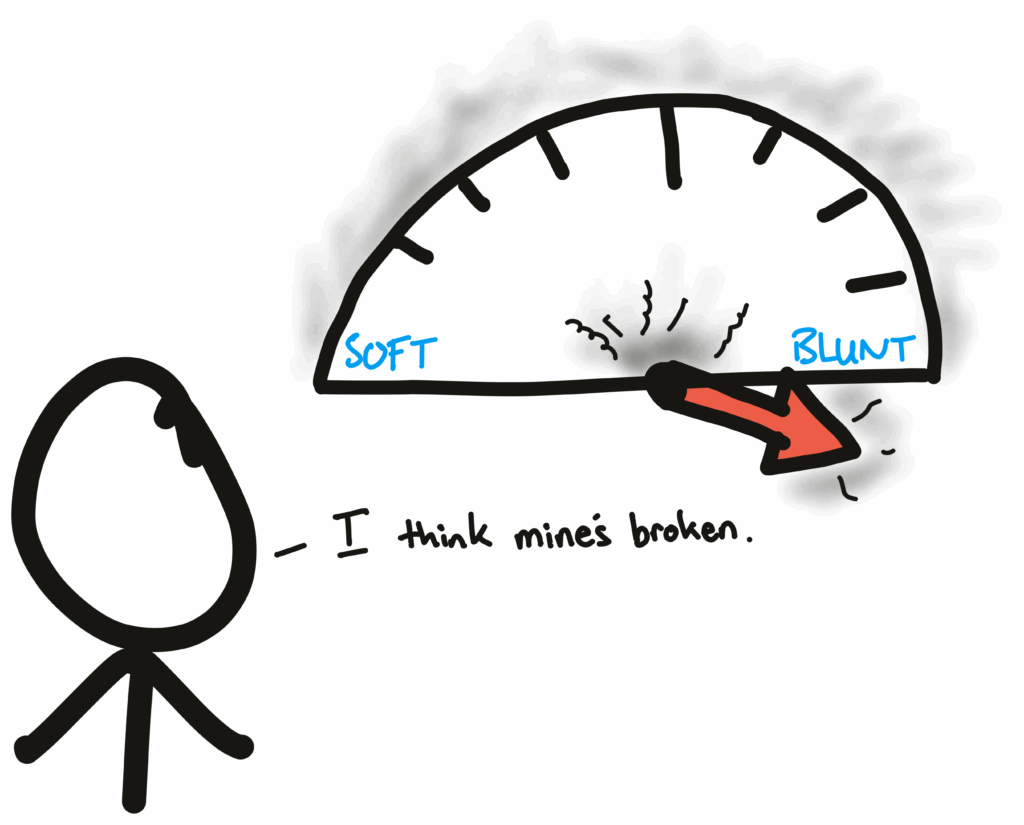
The other time to be blunt is when being soft doesn’t make your message clear enough or it doesn’t cause them enough pain to change their behavior. Both are important.

Some Structure to Feedback
Step 1. Determine what feedback you want to give them. Be blunt in your mind. It’s faster.
Step 2. Invert the blunt phrasing to soften the approach. He sucks at public speaking→you are not good at public speaking.
Step 3. Convey a sense that you believe they are capable of more or growing.
…yet.
…but I will help you get there.

Closing Thought: People Need More Feedback
Feedback is a gift rarely given well. Most of the time it comes across as criticism and not even the good kind—not one iota of construction in there.

Having a thoughtful way of giving people feedback that doesn’t trigger them helps you develop them more. Don’t let a lack of tact or phraseology keep you from leading them. When you challenge, grow, and inspire people to the best version of themselves, life becomes all the sweeter.
Experiments
- Pick someone that you want to help grow. Ask yourself what would better look like for them? Attempt to give them that advice this week. Set the tone of the conversation to, “I care about you and want to see you grow.”
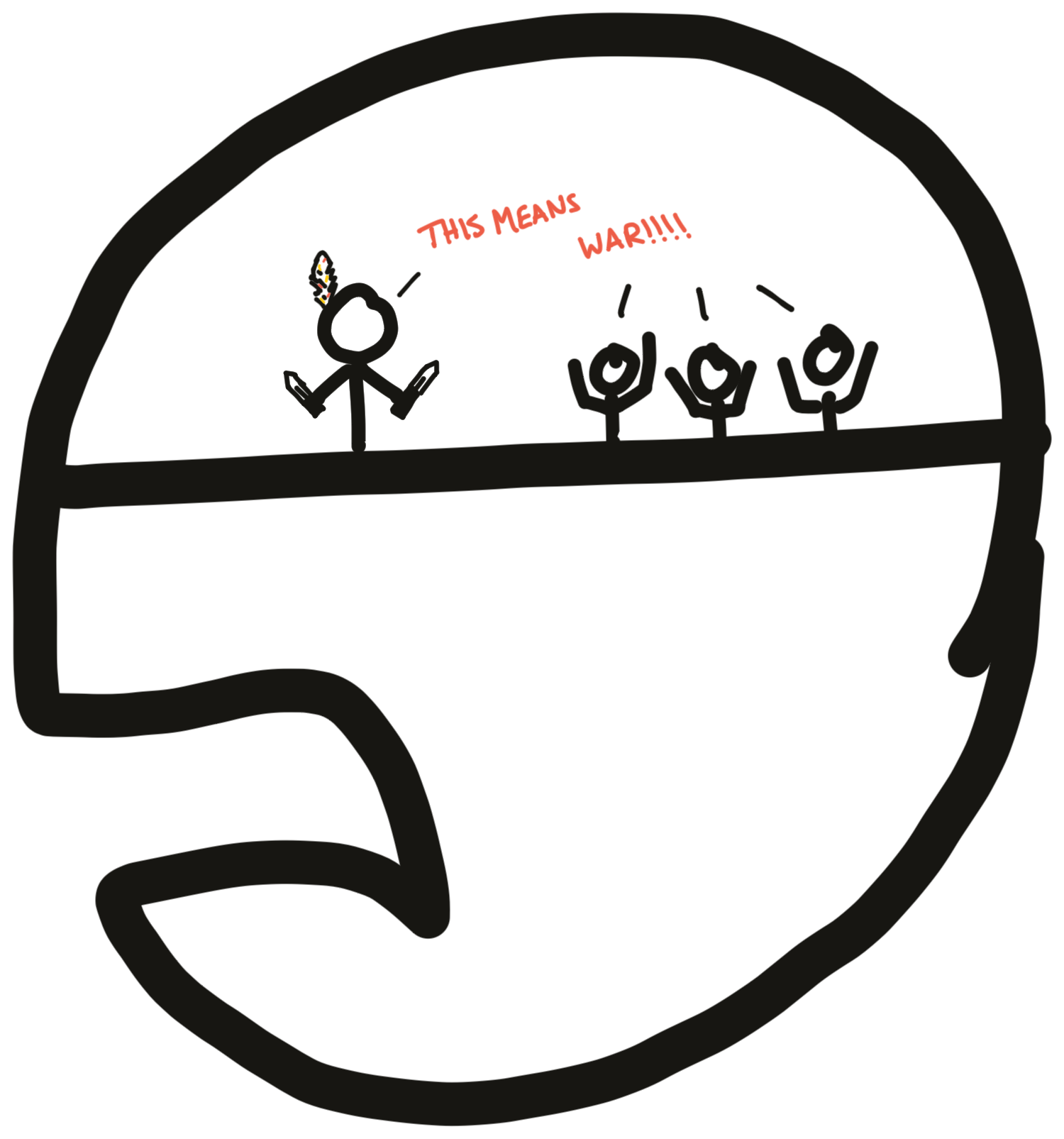
3 responses to “Not Good is Better Than Bad? Most of the Time”
I recently learned that my rater thing I am MQ and my Senior Rater does not agree. My “war council” went to work in my brain because my SR never did any kind of counciling or feedback with my performance.
I think this article is gong to be a good reference to counciling and avoiding spoiled opportunities for growth
Dude this article was hilarious. I’m definitely going to remember this for a while.
This is great. You’ve managed to describe/put into words something that I see people struggling with pretty often. They confuse honesty with bluntness and get mad when their poorly presented feedback is met with upset feelings instead of gratitude. Another technique that can help here is the “sandwich method” where you put the corrective feedback between two pieces of praise.